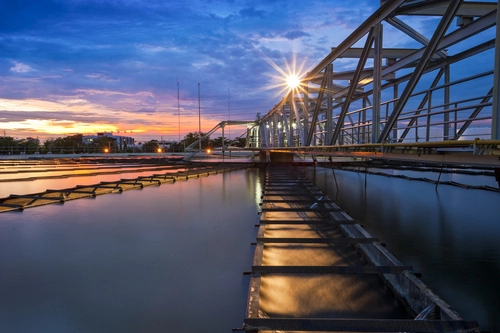To mitigate the effects of climate change and years of drought, California plans to double the amount of recycled water produced in the state by 2040 – but is producing more water enough? There’s a rising trend of building energy recovery facilities in wastewater facilities to reduce the reliance on existing utility providers and powering the plant with biogas generated from sludge processing and co-digestion of organic waste diverted from landfills. …
A decades-long battle over a proposed desalination plant generated considerable attention for desalination. Despite the defeat of the Poseidon plant in Huntington Beach, CA, the California Coastal Commission has approved multiple plants since. As a result, substantial questions remain about desalination’s role in California’s water future. In “The Future of Desalination, Post-Poseidon,” we analyze the most significant barriers and opportunities for desalination to help California overcome its future water shortage issues due to population growth and climate ...
Federal prevailing wage law, known as the Davis-Bacon Act and Related Acts (Davis-Bacon Act), is applicable to almost every federal and federal-aid project. The rules governing the Davis-Bacon Act have been essentially unchanged for 40 years. But now, for the first time since the Reagan administration, the U.S. Department of Labor (Department) is updating the Davis-Bacon Act and making a number of significant changes to how the Davis-Bacon Act is administered ...
The first urban-core tolling program in the United States marked a major milestone. In late June, the Federal Highway Administration (FHWA) concluded its environmental assessment of the Metropolitan Transportation Authority’s (MTA) Central Business District (CBD) Tolling Program and issued a Finding of No Significant Impact (FONSI). This federal determination will allow the program to move forward into implementation. ...
Last month, through the annual process known as the “May Revise,” California Governor Gavin Newsom released an update to the 2023-24 state budget proposal that he first introduced in January. The updated budget proposal sets forth a $306.5 billion spending plan that seeks to tackle the state’s growing budget deficit while maintaining key investments in education, healthcare, housing, climate and infrastructure.
Regarding infrastructure, the Governor noted that, due to unprecedented local, state, and federal investments, the state will spend more than $180 billion ...
On January 10, 2023, the Biden-Harris administration released the U.S. National Blueprint for Transportation Decarbonization ("Blueprint"), representing a major step in advancing the president’s clean transportation agenda and addressing the growing climate crisis caused by greenhouse gas (GHG) emissions. The Blueprint arrives as preliminary U.S. carbon-emissions data for 2022 show yet another year of increased emissions, indicating that the country is not on course to meet its commitment under the Paris Agreement to halve economy-wide emissions by 2030. ...
Nossaman’s 30-plus infrastructure attorneys offer clients, colleagues, strategic partners and industry media a wealth of practical experience, insider insight and thoughtful analysis here on Infra Insight. We blog about what we know best, from industry-leading procurements to local and national policy developments that affect the market and our clients.
Stay Connected
 RSS Feed
RSS Feed
Categories
- Airports
- Alternative Project Delivery
- Bridges
- California Environmental Quality Act
- Cybersecurity
- Design-Build
- Financing
- High-Speed Rail
- Job Opening
- Legislation
- News
- P3s
- Policy
- Ports
- Rail and Transit
- Social Infrastructure
- Tollroads/ Turnpikes/ Managed Lanes
- Transportation Infrastructure
- Tunnels
- Water






